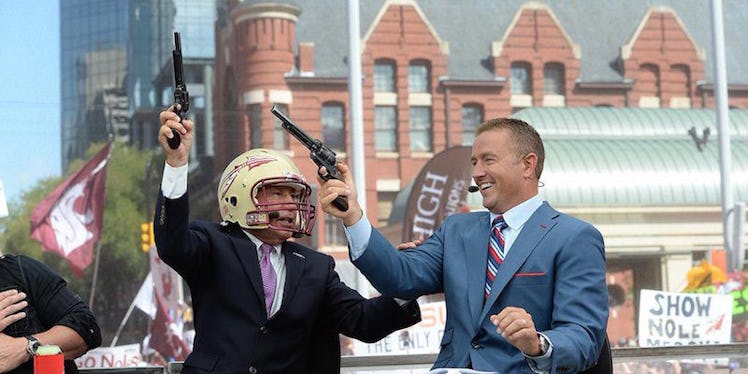ESPN has shut down its sports and culture website, Grantland (effective on Friday), leaving a lot of stinging anger and vitriol in the Twittersphere over the weekend.
Grantland was well-known for its high-level sports coverage, but it was also known for its ventures into other areas, including intellectual podcasts and television reviews.
On the site itself, there is a banner on the front page, which leads off with the ominous text: "It was a good run."
That run was started in 2011 by high-profile writer and site founder, Bill Simmons, whose contract with ESPN was not renewed in May 2015.m(He has subsequently signed a deal to do a weekly show on HBO that will begin airing in 2016).
The site was hit by the loss of Simmons, but the day that might have been its death blow was October 11, when four senior editors for the site were poached by Simmons for his new project.
According to Deadspin, the levels of acrimony between ESPN and Simmons reached such great heights, a condition for the editors leaving for his new project was they could not forewarn ESPN of their departure “in order to hit the site as hard as possible.”
So, why did ESPN shut it down? What does that mean for the future?
An ESPN official told CNN this move signifies a pivot for ESPN, as it is jumping ship from the pop-culture business.
What was troublesome was the fact that so few people were notified of the decision before the site was shut down.
Well that's the first time I've ever found out I was laid off via Twitter — Michael Baumann (@MJ_Baumann) October 30, 2015
While this is a big loss for the sports community and intellectual writing, there's hope that all of these writers will get to work on other interesting projects.
But more importantly, this debacle points to a large issue with ESPN, at a time when there has been a widely-reported mandate from owner Disney (it owns 80 percent of the holding company, ESPN Inc.) to cut $100 million from its budget by 2016 and $250 million by 2017.
This points to a larger trend in the consumption network: Top-down bundles of content are going to be a thing of the past.
With so much content being developed on so many platforms, consumers are demanding to be able to choose what content they want, when they want it.
This will be shaking up a lot of the industry.
It's a scary concept. Millennials who don't want to watch sports don't have to buy into a subscription package that includes such content.
Meanwhile, ESPN is bloated with content costs, cutting expensive deals with the NFL and facing increased competition.
According to the Wall Street Journal, ESPN lost 3.2 million subscribers over the past year. The nature of the beast is consumption patterns are changing.
You can access content everywhere. Streaming is now the present, but what's the future?
That's the question advertisers, content producers and big companies like ESPN are asking. It's one that is going to be answered by the people.
The so-called "skinny" packages of content offered by services like DISH Network's Sling TV -- essentially letting you pick and choose what channels you want to pay for -- point to a change in revenue for a lot of companies.
The customization of what you want, when you want it, should frankly be scary to ESPN.
What's to stop big earners like Facebook or Google from buying the rights from the NFL or NBA to broadcast games?
They are already knowledgeable of your online behaviors and put you into an ecosystem of their worlds.
ESPN isn't going to die anytime soon, though. But it will have to adapt as consumption changes.
It has over 90 million subscribers and has the talent and infrastructure to produce all varied sports offerings at scale.
But, it is wary of what you're watching and how you watch it.
